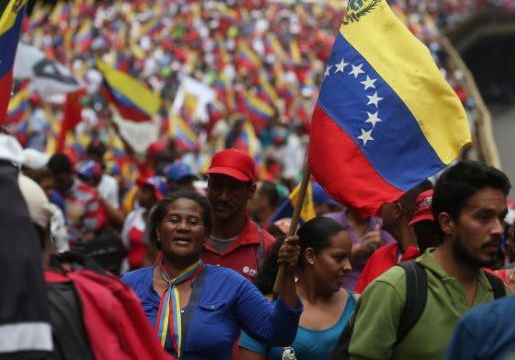
Jul 5, 2019 | Advocacy, Non-legal submissions
The ICJ today highlighted the role of the “National Constituent Assembly” in Venezuela in contributing to the destruction of the rule of law in the country, in an oral statement to the UN Human Rights Council.
The statement, delivered during an Enhanced Interactive Dialogue on the situation for human rights in Venezuela, in the presence of the UN High Commissioner for Human Rights, read as follows:
“Madame High Commissioner,
Next week the International Commission of Jurists (ICJ) will publish a detailed report on the “National Constituent Assembly” of Venezuela (NCA) mentioned briefly in your report (A/HRC/41/18, para 34).
The NCA was created unilaterally by the President, without popular endorsement through a referendum, in blatant violation of the Constitution.
As your report notes (footnote 26), the NCA has purported to act as a de facto Parliament. In this it has unlawfully usurped legislative powers clearly assigned by the Constitution to the already-existing National Assembly. Among other things, it has called early presidential elections and removed the Attorney General. It was the NCA that actually rescinded legislative immunity for National Assembly representatives, enabling their arrest and prosecution, after the Supreme Court purported to authorize it to do so (para 37).
Furthermore, as ICJ has extensively documented and your report recognizes, the Venezuelan judiciary has been deprived of its independence and impartiality (paras 56 and 76).[1] Lack of access to justice for widespread gross human rights violations by security forces is pervasive (paras 39 to 59, 77 to 79).
In this context, the NCA essentially operates as an unchecked instrument of the President, unilaterally modifying the legal system, declaring itself above the Constitution, and contributing to the destruction of the rule of law.
We therefore particularly welcome the recommendations in your report to restore the independence of the justice system and impartiality of the Attorney General (81(j)), to bring perpetrators of gross human rights violations to justice (81(c)), and for a renewed focus by the Council on accountability (para 83).
The ICJ further urges that the NCA must be abolished and the National Assembly allowed to operate normally with its full powers, if the rule of law is to have any chance of being restored in Venezuela.
We support calls for the Human Rights Council to establish a Commission of Inquiry or similar mechanism.
Thank you.”
[1] See, among other ICJ reports: Venezuela: The Sunset of the Rule of Law (2015); The Supreme Court of Justice of Venezuela: an Instrument of the Executive Branch (2017); and Achieving Justice for Gross Human Rights Violations in Venezuela (2017).
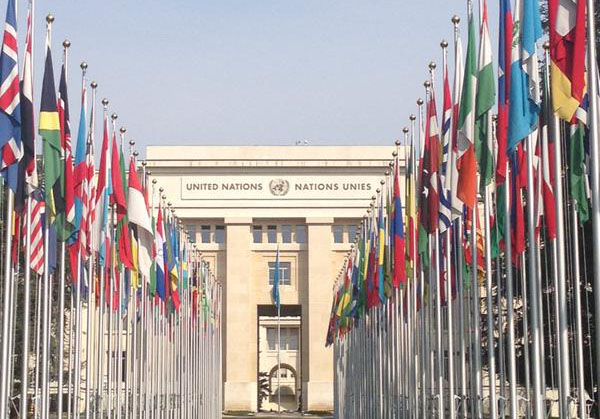
Jul 3, 2019 | Advocacy, Non-legal submissions
The ICJ today joined other NGOs in urging the UN Human Rights Council to take action on the Philippines.
The joint oral statement was delivered by the World Organisation Against Torture (OMCT) on behalf of OMCT, Amnesty International, the International Commission of Jurists (ICJ), Franciscans International, Swiss Catholic Lenten Fund, the International Federation for Human Rights (FIDH), FORUM-Asia. It read as follows:
“In March 2019, the UN High Commissioner for Human Rights noted that several sources “estimate that up to 27,000 people may have been killed in the context of the campaign against illegal drugs since mid-2016.”
Unlawful killings, including of children, carry on, and President Rodrigo Duterte and his administration continue to explicitly encourage these acts. In June 2019, the scale and seriousness of the reported human rights violations prompted 11 UN human rights experts to call on the Council to establish an independent investigation into such violations.
Intimidations by government officials at the highest levels against politicians, human rights defenders, journalists, and several Special Procedures mandate holders have also been rising.
At the 35th, 36th, and 38th sessions of the Council, Iceland, on behalf of a group of States, explicitly called on the government “to take all necessary measures to bring killings associated with the campaign against illegal drugs to an end and cooperate with the international community to investigate all related deaths and hold perpetrators accountable.”
In light of the failure of the government to effectively investigate and bring to justice those responsible, we urge all States to support the adoption of a resolution on the Philippines at this session, mandating the OHCHR to monitor and provide regular updates on the human rights situation to the Council, as the first step toward establishing an independent international investigation into extrajudicial killings and other human rights violations committed in the government’s ‘war on drugs.’.
Such a response is all the more important given the Philippines obligations to uphold the highest standards in human rights as a member of the Council.”
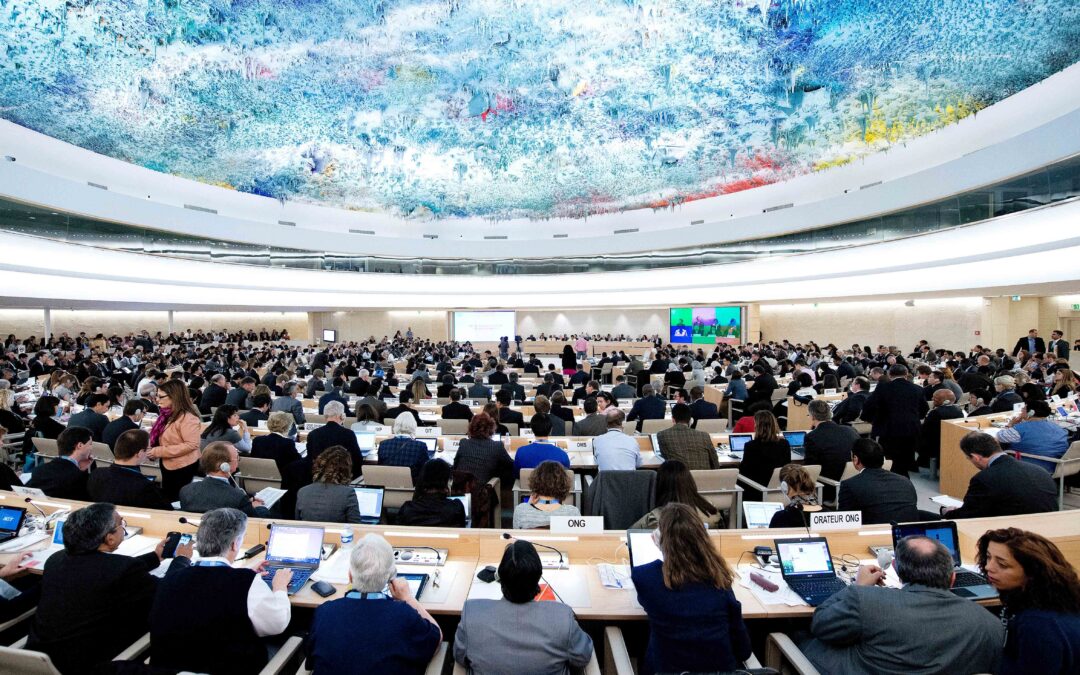
Jul 3, 2019 | Advocacy, Non-legal submissions
The ICJ today joined other NGOs in drawing the attention of the UN Human Rights Council to extra-judicial killings and enforced disappearances in Kashmir.
The statement, delivered by International Federation for Human Rights Leagues (FIDH) on behalf of Asian Forum for Human Rights and Development (FORUM-ASIA), Human Rights Watch, International Commission of Jurists, and World Organisation Against Torture (OMCT), read as follows:
“We look forward to the publication of the High Commissioner for Human Rights’ second-ever report on the grave human rights violations and abuses committed in Kashmir.
In Indian Administered Kashmir, government forces have been responsible for serious violations, including unlawful killings, enforced disappearances, torture, and rape and other sexual violence. These grave violations by security forces in Kashmir are met with chronic impunity, as alleged perpetrators are rarely properly prosecuted for human rights violations, leading to near-total immunity for the crimes committed. Non-state armed groups have also been responsible for serious abuses, including attacks against journalists.
In Pakistani Administered Kashmir, there have been reports of unlawful restrictions on freedom of expression and association, as well as the misuse of anti-terrorism legislation against protesters.
We are gravely concerned by the increasing threats faced by, and reprisals against, human rights defenders and others who have cooperated with UN human rights mechanisms in recent years, particularly in the elaboration of the OHCHR’s reports. We urge the Government of India to ensure that human rights defenders and journalists are allowed to carry out their work without threats or reprisals, and take adequate steps to protect them from non-state groups.
We also remain concerned that the Governments of India and Pakistan continue to deny access to OHCHR and other human rights mechanisms to Kashmir. We call on them to grant unconditional access to these mechanisms, as well as to human rights organizations and the media.
We also call on the Council to act on the call to establish a commission of inquiry.”
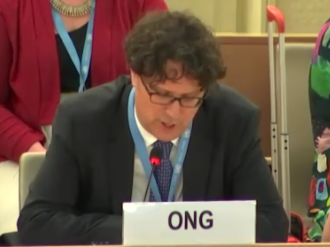
Jun 25, 2019 | Advocacy, Non-legal submissions
Speaking at the UN Human Rights Council in a general debate on the oral update of the High Commissioner for Human Rights, the ICJ addressed issues around “foreign fighters”, criminalisation of solidarity with migrants, and the need for international investigation of violations in the Philippines.
The statement was as follows (check against delivery):
“The International Commission of Jurists (ICJ) thanks the High Commissioner for her oral update.
The ICJ agrees that accountability for crimes under international law committed by foreign fighters is essential; equally, it must be ensured through fair procedures. Where children are concerned, their best interests must be the guiding principle. [To the extent foreign fighters are addressed in relation to counter-terrorism measures, ICJ emphasizes that not only is disregard for human rights in countering terrorism wrong and unlawful in itself, it is also ineffective and indeed itself conducive to terrorism.]
The ICJ is also concerned at the criminalisation of solidarity with migrants in Europe and elsewhere. No one should be penalised for supporting human rights, including those that States fail to uphold. On Thursday, together with the OHCHR and the Geneva Bar Association, ICJ will screen a documentary in Room XIV, the UN Cinema, showing the impact of criminalization of solidarity.
The ICJ supports calls by the High Commissioner and Special Procedures for urgent action by the Human Rights Council on the Philippines. Adoption of a resolution at the current session to establish an independent international investigation is essential.
The huge number of killings in the name of countering drugs is part of a broader pattern of impunity. For instance, at least 39 lawyers have also been killed under the current administration, some of whom were representing victims of human rights violations. A fully independent national commission of inquiry and measures actually to bring perpetrators to justice are also needed to end the pervasive culture of impunity.”
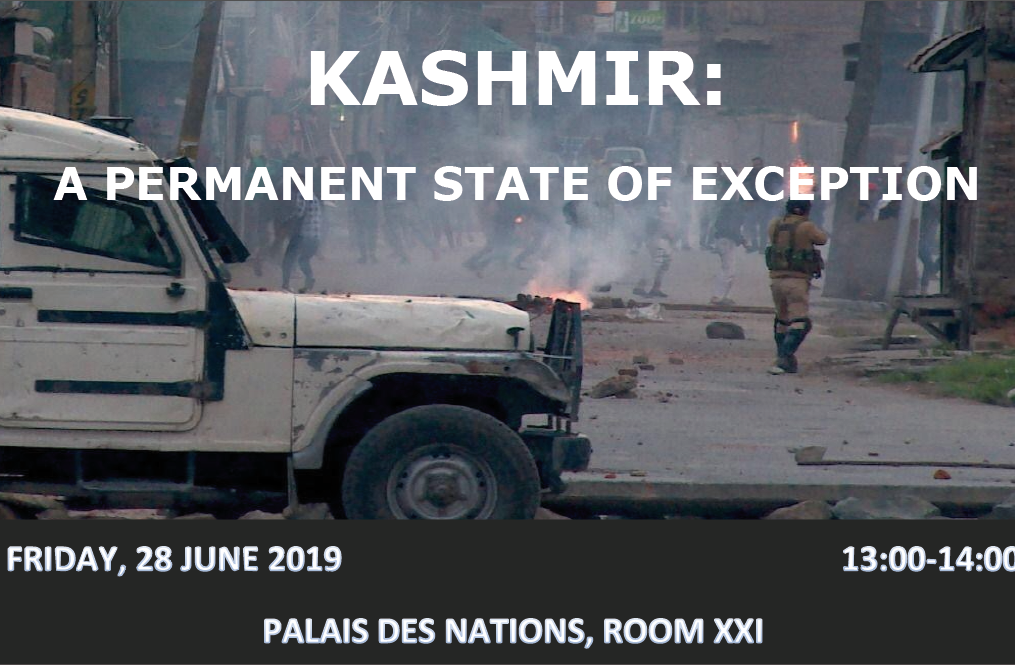
Jun 23, 2019 | Events, News
This side event will take place on Friday 28 June 2019, from 13:00-14:00, in Room XXI, at the Palais des Nations.
There has been an increase in serious human rights violations in Kashmir, particularly since 2016. This has coincided with shrinking space for human rights reporting and advocacy at the national level, with human rights defenders facing unprecedented threats and reprisals.
The escalating violence, coupled with systemic impunity for perpetrators, has made it imperative for the human rights situation in Kashmir to be highlighted at the international level, including at the UN.
This event aims to bring to the forefront the human rights aspect of the conflict and discuss possible strategies through which the international community can play a more effective role in ensuring the promotion and protection of human rights in the region.
Keynote Address
Hon. Judge Navanethem Pillay: Former UN High Commissioner for Human Rights (2008-2014)
Moderator
Sam Zarifi: ICJ Secretary General
Speakers
Juliette Rousselot: Program Officer for South Asia, International Federation for Human Rights (FIDH)
Gerard Staberock: Secretary General, World Organization Against Torture (OMCT)
Dr. Angana Chatterji: Co-chair, Initiative on Political Conflict, Gender and People’s Rights, Center for Race and Gender, University of California, Berkeley
Kashmir-HRC-Event-2019-ENG (Flyer in PDF)









